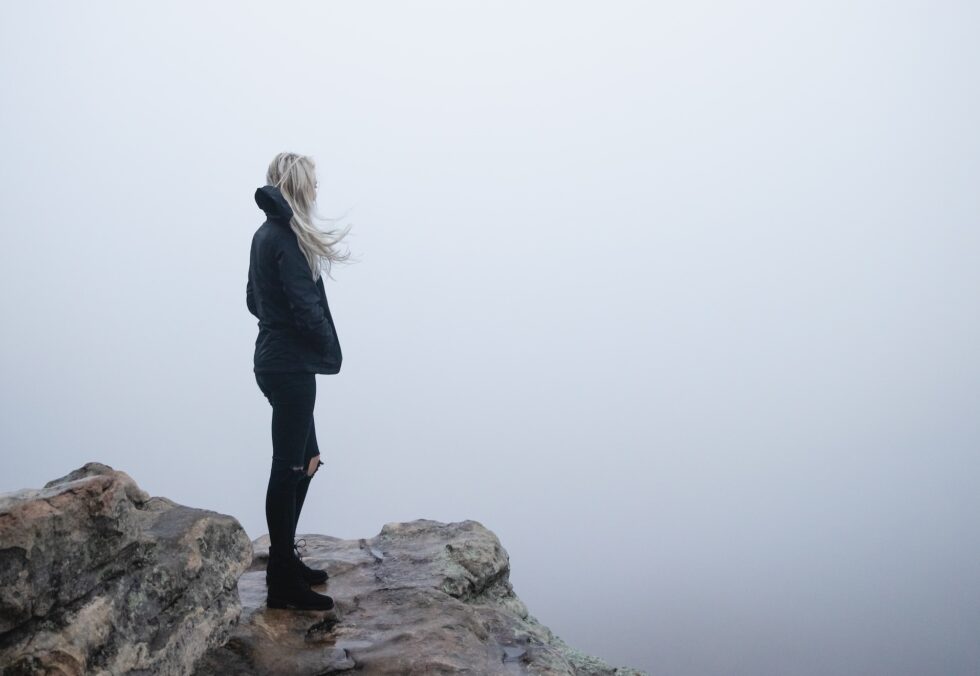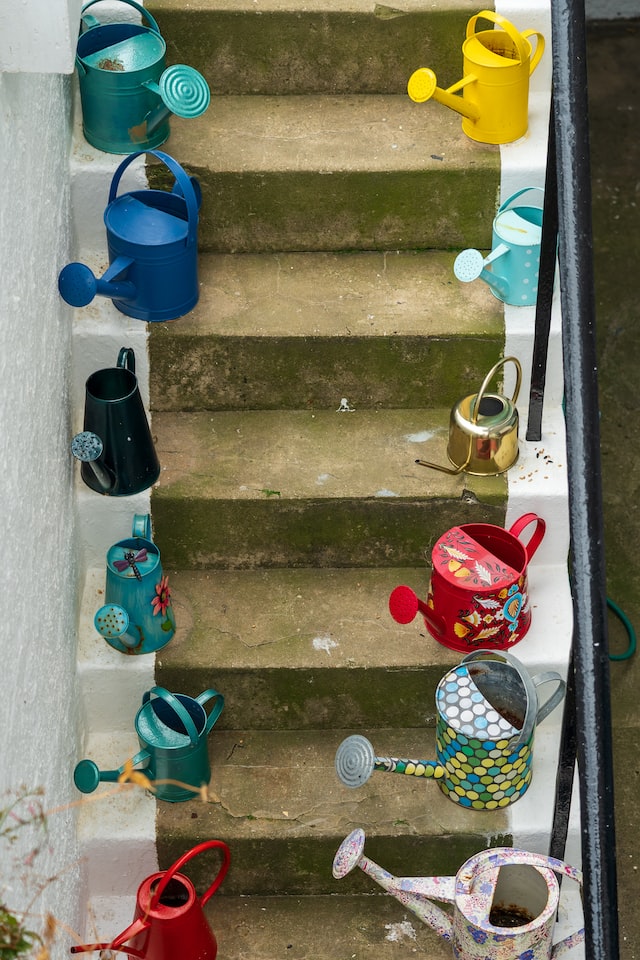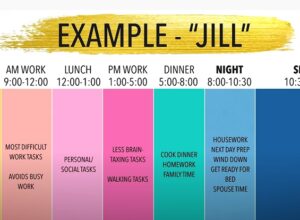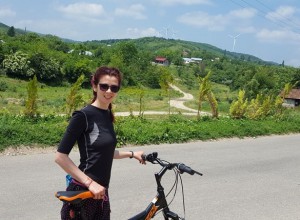
The following article was originally published in Romanian on the website of Decât O Revistă in June 2022.
***
My inbox tells me that climate change is determining the baby birds to hatch earlier and that the planetary ocean grew, in 28 years, with 144 million Olympic pools with water. A news website about the environment published an article titled: “50 degrees Celsius in India and Pakistan: «We live in hell»”. A piece of news from a friend is awaiting me on messenger that says that greenhouse gas emissions from Europe exceeded pre-pandemic values, after two years of decline. On a Facebook group, somebody shows that 1,700 tons of Russian charcoal sank in Constanța port, and still, authorities don’t consider giving up on our dependence on fossil fuels.
I wrote daily news about the environment for four years. Few were positive; most of them were about disasters, bad decisions in public politics, concerning studies, and pollution. While searching for information, I transformed them into stomach aches, lumps in the throat, and tears falling on my keyboard. I was scared, angry, and amazed by how people could live peacefully while the world’s end was approaching.
I felt guilty about not having a zero-waste lifestyle, how seems to have the vloggers who present a little jar of garbage collected in a month – my husband and I are collecting a trunk of a small car of waste in the same amount of time. I observed a slight feeling of helplessness when acquaintances asked me where to bring the recyclables, where they should complain about the garbage in front of their blocks, and how to educate their parents to be more friendly to the environment.
And my inner critic found a new way of telling me I’m not making any difference. That it doesn’t matter if I reject the plastic bag from the shop, that I turn off the light when I leave the room and the tap water when I brush my teeth, that I’m always carrying a stainless steel bottle, that I improvise a travel kit with the containers I already have, that I always wash the packaging before sending them to recycling, that I collect the used oil, old clothes, small pieces of paper, zip plastic bags. I think a hundred times before buying something: do I really need this?
When you live with eco-anxiety, every small step counts
What I experienced is called eco-anxiety, and the American Psychological Association defined it in 2017 as “a chronic fear of environmental death”. Although doctors don’t consider it a diagnosable condition, the Royal College of Psychiatrists says it’s a variety of feelings and emotions people experiment when they hear bad news about the environment.
How do those with such existential problems manage to be functional and not get stuck in their mind? What is the middle way if you want to protect the environment but also enjoy life?
A global study published last fall pointed out that almost 60% of young people (16-25 years old) are concerned or highly concerned about environmental issues. 75% of 10,000 young people in 10 countries said the future was scary, and most of those surveyed were anxious, angry, desperate, sad, and ashamed.
“I don’t know why the usual anxiety isn’t enough. Did it have to be a new one?”, asks a mother whose daughter suffers from climate anxiety and doesn’t want to have children because the Earth is overpopulated in Fredrik Backman’s book, Anxious People.
After finding these experiences in discussions with friends and acquaintances also, I made a form with questions related to eco-anxiety, hoping to find a character to tell this story. I received over 100 responses. Suddenly, eco-anxiety was no longer something foreign researchers were talking about. It was right in our backyard.
And the people in the cells of my Excel table go through the same moods as the young people in the global study. People who collect separately, choose public transport, avoid meat and products packaged in plastic, or buy goods only if they really need them have admitted their feelings of uselessness and inadequacy. “Efforts are like in the story of Craftsman Manole: what we build today collapses tomorrow,” wrote Ana Maria. Some dream of climate apocalypses, where flowers turn to ash, the sky is covered in radioactive clouds, and naturalist researcher David Attenborough advises them to abandon the fight because the world will end soon. Others admonish friends who waste water or food at the risk of damaging relationships. The topic of climate change even creeps into party talks, and fingers are pointed accusatory at governments and companies that could be doing much more.
Deliana, for example, feels daily that she is swimming upstream because the change for the better happens too slowly, and she doesn’t have enough power to stimulate a collective shift in habits. While she agrees with the voices that say big corporations are causing global warming, she believes the effort needs to happen collectively and individually. This weariness she reads in the people around her is just a toxic discourse that discourages collective action.
“If everyone thought that what they are doing is useless, then it really would be,” believes Cosmin. And Monica wrote: “It’s up to everyone to do what and how much they want, in their bubble, to create a clean bubble. You can’t face the whole world alone.”
In order not to remain stuck in their thoughts, some go to therapy, and others talk to their loved ones. Some volunteer, reduce consumption, and plant trees in the neighborhood; others meditate, pray, turn off the TV, and open novels. Someone chose a job in an association that fights against climate change, and someone else accepted the reality: “One man cannot change the whole planet.” For many, focusing on small steps and the present and time spent outside help.
“I try to enjoy nature even in Bucharest,” wrote Anca. “I’m gardening, and I’m glad my tomatoes are growing even to the sound of Dristor’s horns.”
How can we turn the volume down of our inner critic

“You don’t have to, and you can’t save the Planet alone. There is also positive news, not only that the forests are burning, and the oceans are full of plastic,” the therapist kept repeating. There were times when I melted on the sofa in her study, frightened by the thought that I wasn’t doing enough to protect the environment, scared of what would happen to us.
I was curious about what eco-anxiety looks like in other specialists’ offices.
Roxana Nicolau, clinical psychologist and psychotherapist at the Multicultural Association of Psychology and Psychotherapy, says that 15% of her clients have also raised concerns about the Planet’s future. Most are teenagers, and the number of cases will increase, she believes, because protecting the environment is an essential value for new generations.
“The contagion phenomenon is much stronger among teenagers than adults,” she says. “Where there are two or three environmentally anxious teenagers, the chances are very high that there will be a few more.”
Are prone to eco-anxiety those who tend to worry quickly and excessively about possible dangers, spend a lot of time thinking about a threat without acting, are overly responsible, have problems managing their emotions, and have an impaired sense of proportion. Pessimists, who especially cling to negative and alarming information, are also vulnerable, as well as those with a strongly developed internal critical voice because of school, society, and family.
“If I find it difficult to relax at the end of the day that maybe I haven’t done enough, it’s most likely a problem with this inner critic,” says Roxana. “He never gets the job done. But no one says that all fighters for a better climate must be exhausted and tired. On the contrary.”
Energy and optimism in the research
If for us, who can decide when to have contact with information related to environmental problems, the future of the Planet can be scary, how do those who work in this area feel? How do they get their work done without getting stuck?
Sorin Cebotari is a researcher in the sustainable development field and the founder of the InfoClima project, a network of Romanian researchers that explains the science behind climate change. When you’re doing research, he explained, you don’t have to be emotionally involved because you will influence the reading of the data and how you phrase the survey questions so that they tell you what you want to hear. He admitted that he sometimes feels frustrated by the mismanagement of global resources, despite scientific evidence suggesting other solutions. But worried or scared, however, he doesn’t feel: “Maybe it’s my optimistic nature, but I try to enjoy the good news. And I ignore these things bigger than me because otherwise, I wouldn’t have the energy to go on”.
Alexandru Stermin teaches human ecology at Babeș Bolyai University in Cluj – a subject that studies the relationship between humans and the environment – and is a biologist. When I called him, he was getting ready to go on an expedition to Brazil to study a species of pond hen that has intrigued scientists. Although many birds have disappeared due to human impact, she has adapted. It makes its nest out of juice straws and pieces of plastic.
Alexandru does have moments when he is scared, like in 2018 when, on an expedition in Siberia, he arrived in places where the map showed taiga – a forest made up mainly of conifers – but in reality, it was a forest with short trees: “The climate warmed so much that the taiga went north.”
But he has three pillars on which to rely his optimism on: technology, which already helps us to have less impact on the environment, the potential to slow down the activity – as happened in the first year of the pandemic when we seem to have delayed the effects of climate change by 15 years -, and people’s increasing interest in the environment, which he also sees in the nature trips he organizes with adults and children. “I see that people are increasingly concerned that children are taking a stand, that it is being talked about in kindergarten. This reassures me because I have the impression, like any teacher, that better people will come after me.”
I was surprised by this hopeful attitude for the future. But then I found it also on an American Psychological Association podcast, where a researcher studying the effects of climate change on indigenous communities said she’s never felt so confident about her field, thanks to the attention this subject is getting.
The last thing that Octavian Berceanu, former head of the Environmental Guard and environmental activist, thinks about when he goes to the field to identify illegal waste burning is eco-anxiety.
“When the adrenaline levels are high, anxiety is the exact opposite,” he says.
He believes that the recipe for saving the environment is for us all to adopt global goals and act individually as if they were our own. “Make it personal,” he says.
Florin Stoican believes in science, innovation, and people’s ability to find solutions, but also in the power of nature to regenerate. He is a geologist specializing in the management of protected areas, ecotourism, and ecological education and is the president of the Văcărești Natural Park Association and the Kogayon Association. He feels concerned about the climate injustice that will affect those in developing countries, but he is not eco-anxious. Not for him.
“I know that what I do is a drop contributing to the global effort to solve environmental problems. I think the droplets will multiply and produce systemic change, so I focus on what I’m doing and supporting others around me to do the same.”
Attention to action also helps Oana Neneciu, director of the environmental NGO Ecopolis, which launched Aerlive.ro, an independent network of sensors for measuring air quality. She says she tries to solve as much as possible, complain as little as possible, and not put pressure on herself and those around her. “Pollution is a big problem, and I focus on the worst first: the lack of reaction of the authorities, the big polluters, the extremely harmful practices, the lack of data.”
The only solution to not being overwhelmed is involvement, believes Mihai Goțiu, environmental activist and former USR senator. The bigger the challenges and the smaller the chances of success, the more motivated he is to solve problems. As were, for example, the causes he got involved in that extended for years, even decades – the campaign for Roșia Montană, the illegal cutting of forests, the transformation of the center of Cluj into a pedestrian area, and the development of a green corridor on the banks of the Someș river. He gets involved, taking the risk that he will not always achieve the expected results, as happened, for example, with the Environmental Crimes Investigation Department (known as the “DNA of the Forests”), for the establishment of which he submitted a proposal to law two years ago. The law is still blocked, being rejected by the Constitutional Court of Romania for a “procedural quibble”.
“We may end up by screwing it up – as a species, as a civilization – but that’s not a reason to be demoralized,” he believes. “Because if we get off the field, probability becomes a certainty.”
Even if she risks being arrested at every protest where she blocks the streets, involvement is the way to keep going for Daniela Militaru, who lives in London and is an activist in the global environmental movement Extinction Rebellion. She believes humankind has had such a significant impact on the environment that our time on Earth is limited. Based on this criterion, she decides which meetings she accepts or events she attends. She devoted the entire last year to activism after resigning from an IT company and plans to move to a community where she can grow her food and live as sustainably as possible. “I can’t live without activism, I wouldn’t be whole,” she says. “It’s like medicine.”
Small long-term actions for the Planet

It got a little quieter for me when I stopped writing news. I no longer open Twitter and environmental groups on Facebook three times a day, but I haven’t changed my behavior towards protecting the environment either. The panic and sense of urgency that wasn’t making me more effective, just more agitated and perhaps more stressful for others, has diminished. I no longer feel like I’m stealing from the Planet’s days of life if I don’t go that extra mile every single day.
Sometimes it helps to avoid the news and escape into a book. Or write one, as Ilinca Mănescu, a medical graduate and film student at UNATC. She wanted her debut novel to be built around ecology, but the prospect of an apocalyptic world was not compelling. She wanted a universe where people could have hope, so in Children of the Ecosystem, she made them get closer to nature to find a balance between their lifestyle and the natural environment.
In that future world, over millions of years from now, the sun will be so close to Earth and the ozone layer so thin that the Planet has to be protected with a layer of calcium carbonate particles. And an implant with the bioluminescence gene turns people into alternative light sources. “Somehow, it’s a kind of rebirth of humanity and a continuity,” Ilinca says. All the infrastructure is created from living microorganisms, the old buildings have been recycled, the last baobabs are protected in greenhouses, and the banyan trees, which also grow horizontally through some aerial roots, are the ones that have adapted the best.
“The way we live now is ruining the environment and us,” she says. “But I don’t believe in that return to origins either. There has to be an answer somewhere, a compromise. That’s what I was looking for with my mind; that’s the only way I could do it now.”
I understood that we don’t have to make a massive effort today to help save the environment, but be frustrated tomorrow and give up. It’s not about doing enough; it’s about taking action for the long term. It’s about recognizing reality and taking strength from the little steps we can make. I can’t save the Amazon Rainforest, but I can take care of a tree in the park next to the block.




